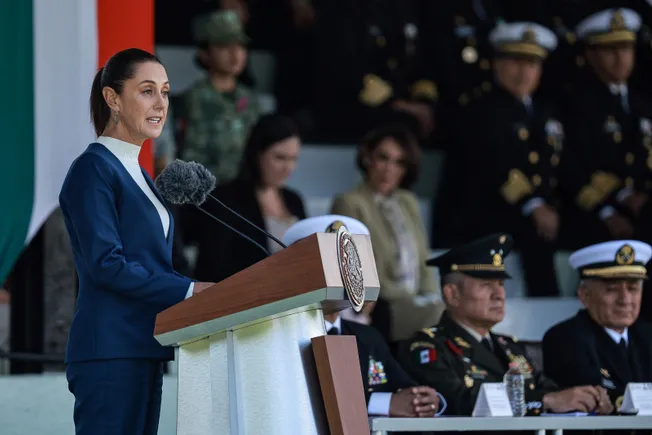The United States has decided to delay tariffs on Mexico by one month, as announced by Mexico’s President Claudia Sheinbaum on Monday. This decision came after discussions between Mexico and U.S. President Donald Trump, who confirmed the delay on the social media platform Truth Social.
As part of the agreements reached, Mexico will deploy 10,000 troops to the U.S.-Mexico border to assist in preventing drug trafficking, while the U.S. will work to stop the trafficking of high-powered weapons to Mexico. Sheinbaum emphasized the importance of collaboration in both security and trade between the two countries.
Over the next month, U.S. officials, including Secretary of State Marco Rubio and Secretary of Commerce Howard Lutnick, will engage in negotiations with representatives from Mexico to reach a mutually beneficial deal. This development follows Trump’s initial plan to impose 25% tariffs on Mexican imports starting February 4.
Mexico had been preparing for potential tariffs for months, strengthening coordination with the U.S. on key issues such as migration. Mexican officials also sought to change the perception of trade deficits between the two countries, highlighting their complementary trade relationship.
In response to Trump’s tariff announcements, Sheinbaum mentioned that Mexico had prepared contingency plans, including both tariff and non-tariff actions. She emphasized the importance of collaboration in combating organized crime and drug trafficking while respecting each country’s sovereignty.
While tariffs on Mexico have been delayed, the U.S. will proceed with imposing new duties on Canada and China. Canada has already retaliated by imposing tariffs on $155 billion worth of U.S. goods, effective immediately.
The delay in tariffs on Mexico reflects the ongoing negotiations and efforts to strengthen the relationship between the two countries. Both sides are committed to addressing security concerns and promoting fair trade practices. This development highlights the importance of diplomatic dialogue and cooperation in resolving trade disputes and maintaining stability in the region.




